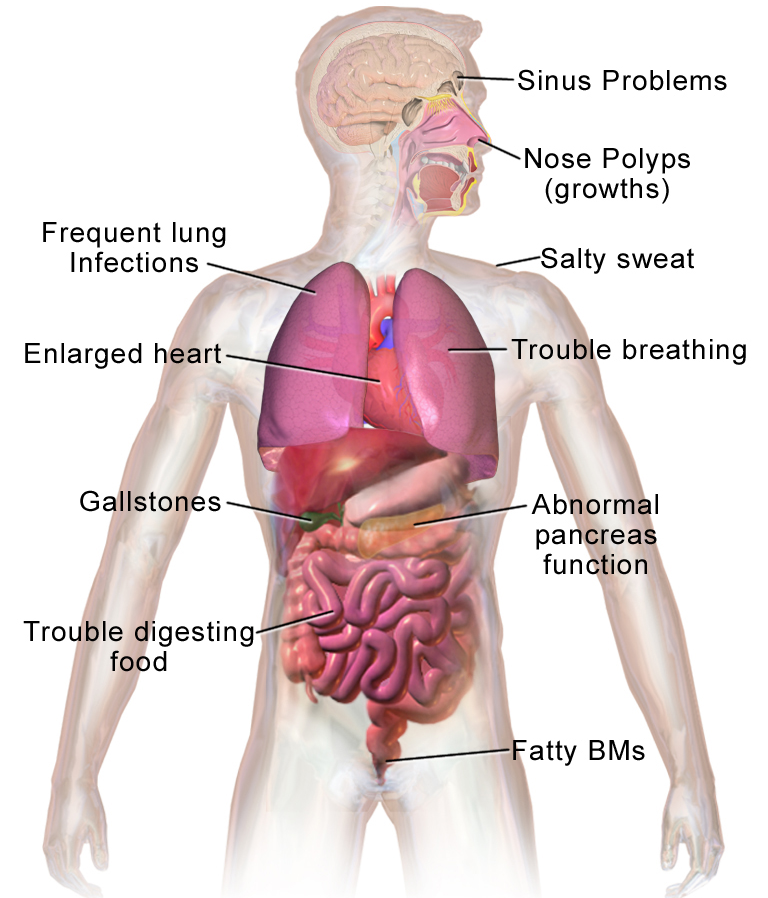What is CF?
Cystic Fibrosis (CF) is a life-threathening disease that primarily the lungs and the digestive system. Around the 70.000 children and adults living today with CF.
In people with CF a defective gene and its protein product cause the body to produce unusually thick sticky mucus that clogs the lungs and leads to life-threatening lung infections. It also obstructs the pancreas and stops natural enzymes from helping the body break own food and absorb vital nutrients.
Symptoms of CF
People with CF can have a variety of symptoms, including:
- Very salty-tasting skin
- Persistent coughing, at times with phlegm
- Frequent lung infections
- Wheezing or shortness of breath
- Poor growth and slow weight gain, in spite of a good appetite
- Frequent greasy, bulky stools or difficulty in bowel movements
Patients with CF spend hours a day to treating the symptoms. At this moment there isn't a cure. Most of the CF patients needs finally a lung- and/of liver transplant.
More information
